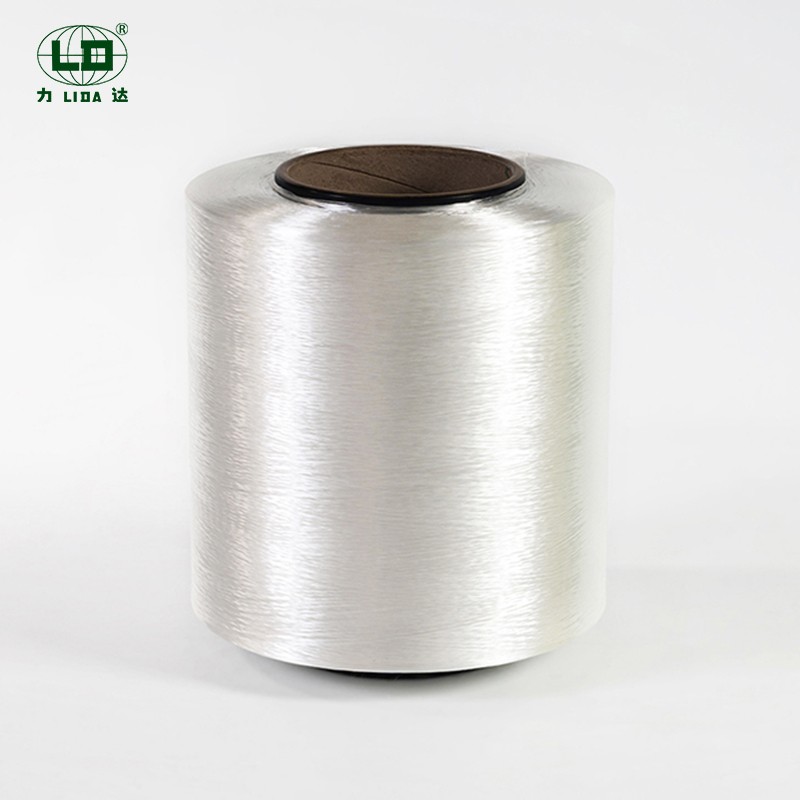Polyester Filament Yarn: Versatile and Durable Fiber for Modern Industries
2025-04-16
Polyester filament yarn is one of the most widely used synthetic fibers across various industries. Known for its strength, durability, and versatility, it plays a crucial role in the production of textiles, garments, industrial applications, and more. From the clothing you wear to the fabrics in your home and even industrial materials, polyester filament yarn is a key component.
In this blog, we will explore what polyester filament yarn is, its characteristics, and its wide range of applications.
What is Polyester Filament Yarn?
Polyester filament yarn is a continuous strand of synthetic fiber made from polyester, a polymer derived from petroleum-based products. Unlike staple fiber yarns, which are made of shorter fiber lengths, filament yarns are long, continuous threads that can be woven or knitted into fabrics. These yarns are produced through a process called extrusion, where molten polyester is forced through a spinneret, forming long filaments that are then cooled, stretched, and wound onto spools.
This continuous filament yarn differs from spun yarns, which are made by twisting short fibers together. Because of its continuous nature, polyester filament yarn offers superior strength, smoothness, and a finer texture compared to other types of yarn.
Key Characteristics of Polyester Filament Yarn
1. Durability
Polyester filament yarn is incredibly strong and resistant to wear and tear. This makes it ideal for fabrics that need to withstand constant use, such as upholstery, outdoor gear, and workwear.
2. Moisture Resistance
Polyester is naturally hydrophobic, meaning it repels water. This characteristic makes polyester filament yarn highly resistant to absorbing moisture, which helps in drying quickly and preventing the growth of mold or mildew. This quality is particularly beneficial for outdoor fabrics, swimwear, and activewear.
3. Wrinkle and Shrinkage Resistance
Polyester filament yarn is highly resistant to wrinkles, making garments and fabrics made from it easier to maintain. It also holds its shape well and does not shrink as easily as other natural fibers, such as cotton.
4. Color Fastness
Polyester filament yarn holds dyes exceptionally well, maintaining vibrant colors even after prolonged exposure to light and washing. This makes it a preferred choice for textiles that require long-lasting color integrity.
5. Lightweight and Smooth Texture
Polyester filament yarn is lightweight, which contributes to the comfort and flexibility of the fabrics made from it. The smooth texture of the yarn allows for the production of fine, soft fabrics that feel pleasant against the skin.
6. Cost-Effective
Compared to natural fibers like silk or cotton, polyester filament yarn is relatively inexpensive to produce. This makes it an affordable choice for manufacturers and consumers alike, especially in large-scale textile production.
Applications of Polyester Filament Yarn
1. Apparel and Fashion
Polyester filament yarn is widely used in the apparel industry due to its durability, colorfastness, and ease of maintenance. It is commonly found in clothing items such as jackets, shirts, trousers, activewear, and even high-end fashion pieces. The versatility of polyester also allows it to be blended with other fibers like cotton, wool, or spandex to improve fabric properties.
2. Home Furnishings
In the home textile sector, polyester filament yarn is used in the production of curtains, upholstery, carpets, and bedding. Its resistance to wrinkles, easy care properties, and durability make it a popular choice for household fabrics that require frequent cleaning and exposure to wear.
3. Outdoor and Sportswear
Because of its moisture-wicking and quick-drying properties, polyester filament yarn is ideal for activewear, including running clothes, swimwear, and outdoor gear like tents, backpacks, and jackets. These garments need to stand up to intense physical activity and environmental conditions, and polyester provides the durability and performance required.
4. Industrial Applications
Beyond the textile and garment industries, polyester filament yarn plays an essential role in various industrial applications. It is used in the production of ropes, conveyor belts, and industrial filters. The strength and resistance to abrasion make polyester filament yarn a suitable material for high-performance applications.
5. Automotive and Technical Textiles
The automotive industry also benefits from polyester filament yarn, particularly for the manufacture of seat covers, airbags, and upholstery. Polyester is strong, lightweight, and resistant to wear, which makes it ideal for automotive fabrics that must endure regular use and exposure to various elements.
6. Packaging and Agriculture
Polyester filament yarn is used in packaging materials, such as strapping bands and stretch films, because of its tensile strength and durability. In agriculture, it is used for netting and fabric covering for crops, offering protection while allowing for airflow and sunlight penetration.
Advantages of Polyester Filament Yarn
1. Strength and Longevity
Polyester filament yarn has excellent tensile strength, making it resistant to breakage or fraying. This durability translates into long-lasting fabrics that maintain their integrity over time, even under strenuous conditions.
2. Versatility
Polyester can be easily blended with other fibers, allowing for a wide range of fabric properties. Whether it’s a fabric that needs to be soft and breathable or one that needs to be strong and water-resistant, polyester filament yarn can be customized to meet the needs of various applications.
3. Environmental Resistance
Polyester filament yarn is resistant to most environmental factors, including sunlight, humidity, and chemicals. This makes it perfect for both indoor and outdoor applications, where exposure to the elements is common.
4. Sustainability
As the demand for sustainable and eco-friendly products grows, there has been an increase in the recycling of polyester. Recycled polyester filament yarn, made from post-consumer plastic bottles or industrial waste, is gaining popularity for its reduced environmental impact. Using recycled polyester reduces the reliance on virgin polyester production, helping to conserve resources and minimize waste.
Conclusion
Polyester filament yarn is a highly versatile and durable synthetic fiber that has become an integral part of many industries. From everyday clothing to industrial applications, its properties of strength, moisture resistance, and colorfastness make it an essential material. The continuous development in polyester recycling also contributes to its potential for sustainability, making it a fiber that continues to evolve with modern environmental needs.
Whether you're wearing a polyester-blended shirt, lounging on a polyester fabric couch, or using a piece of outdoor gear made with this remarkable filament yarn, you’re benefiting from one of the most reliable and efficient materials in today’s textile and industrial markets.



